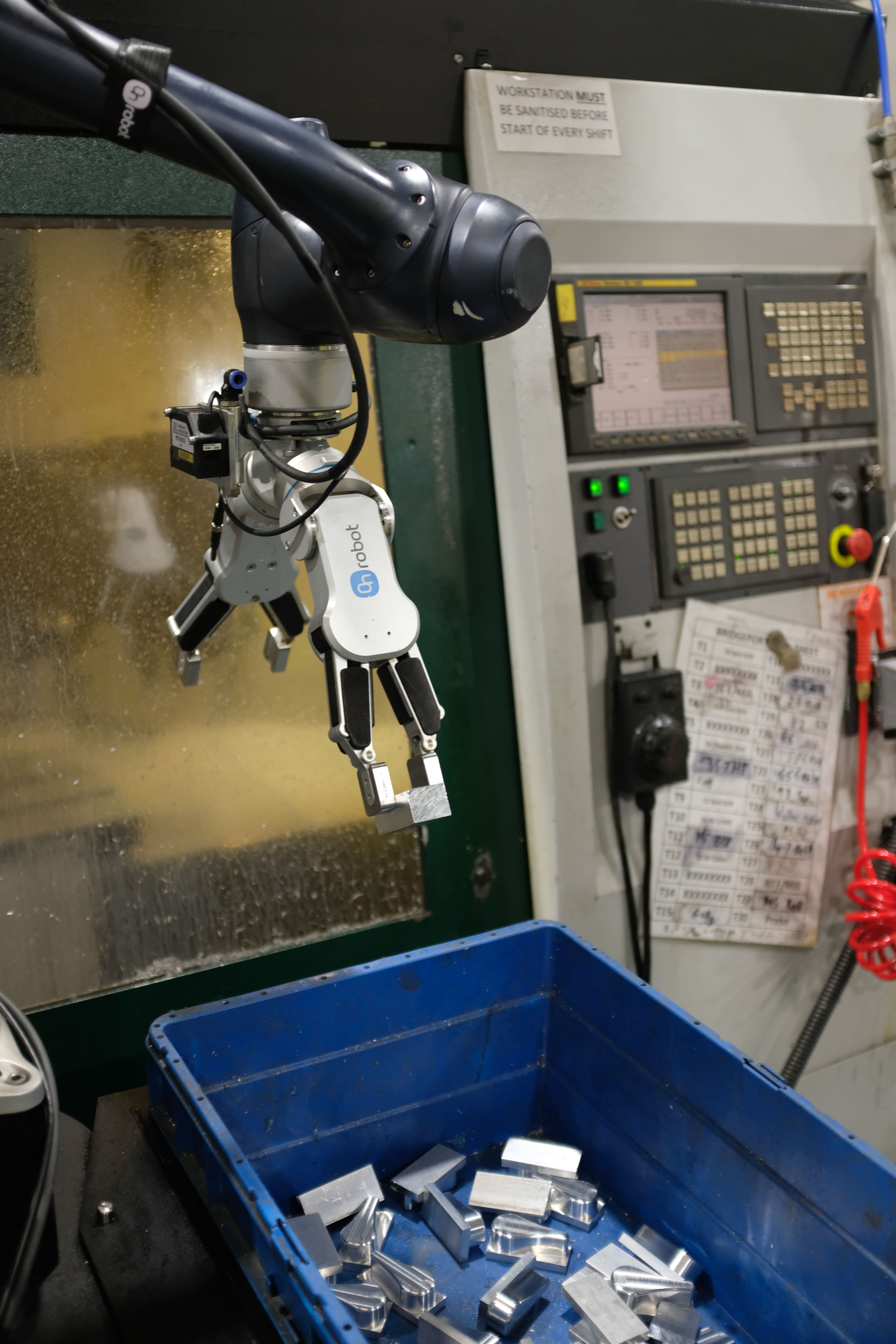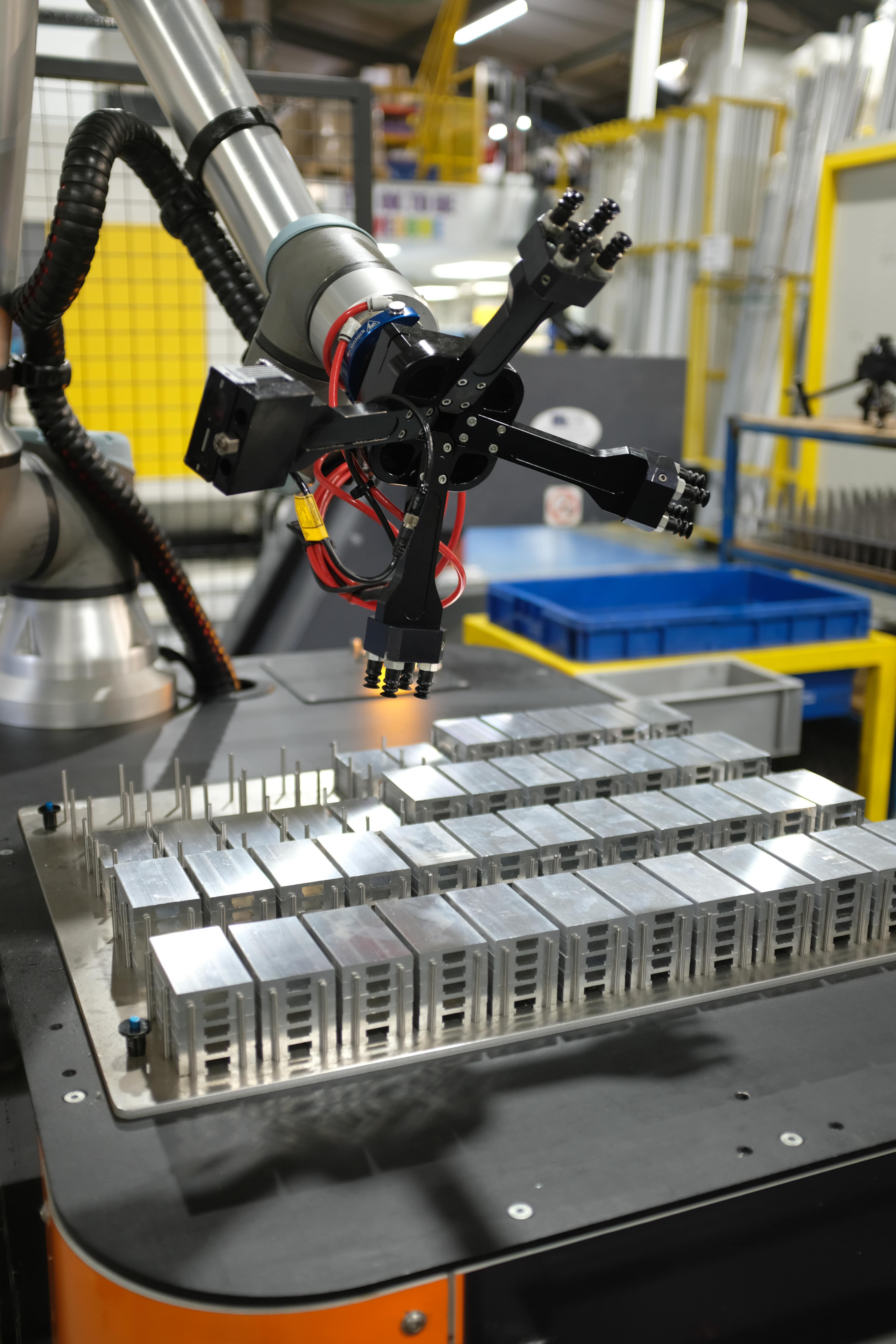Why is Automation Important for Manufacturing Success?
Cobots are revolutionising monotonous, time-consuming, and potentially dangerous tasks across a range of industries. Within manufacturing, the application of cobots is continuing to rise and gain traction like never before. From 2023 to 2030, the deployment of collaborative automation is expected to expand at a compound annual growth rate of 32%.
Many organisations are looking to use advancements in collaborative robots to drive efficiency, lower costs, and remain agile in highly competitive markets. But why exactly is automation so important for manufacturing success?
Automation across the factory floor
Using cobots, robotic arms and innovative end-of-arm tooling (EOAT), any process within a production line is a candidate for automation. Tasks that are repetitive or require extreme precision are perfect for automation through cobots.
EOAT grippers and end effectors allow cobots to easily adapt to various applications including machine tending, pick and place, packaging, palletising, welding, quality checking, assembly and much more. Three types of collaborative automation have developed over the years, these being fixed, programmable and flexible automation.
Fixed automation is designed to perform a single task repeatedly without deviation. Fixed automation systems are typically used for mass production of single parts or continuous flow systems.
Programmable automation is controlled by commands delivered through a program, allowing the automation processes to be altered to changing needs. Programmable automation systems are often used for batch production.
Flexible automation falls somewhere between the previous two. It involves using computer input to program and control a system to be highly adaptable. Flexible automation systems are typically used in real-time or on-demand production with a variety of products.

Reduce errors and wastage to improve quality
No one can be perfect all the time, meaning human errors do happen. Minimising the chance of human error not only allows for a higher quality product, but also increased safety in the workplace.
Manufacturing automation grants the ability to streamline workflows to keep operations lean, efficient and productive. It not only speeds up production, but also delivers manufacturers the ability to measure asset and production performance. Machines can be programmed to repeatedly perform precise motions, with fewer mistakes and a high-level of consistency and accuracy. This results in fewer scrap materials and wastage, and less re-work required to create high quality products.
Boost productivity
Automation is giving manufacturers greater flexibility to be responsive, adjust output to demand and stay competitive in challenging markets. Cobots allow for increased throughput and avoided downtime as machinery becomes more efficient. More products are able to be produced in less time with fewer defects and wastage, significantly improving manufacturers bottom line.
Improve profitability
There is a common misconception that cobots replace workers, and that money saved through automation is only due to jobs being cut in favour of machines. In reality, automation simply allows for a more effective use of resources. By introducing cobots and automation into the workplace, human capital can be placed towards research and development, instead of mundane tasks.
Savings are commonly made through the precise utilisation of raw materials, minimal wastage, increased production capacity and improved predictive maintenance. All these savings combined are helping manufacturers increase their profitability, even when faced with rising costs and tougher markets.

Create more fulfilling roles
Collaborative robots and automation are freeing employees from repetitive and mundane tasks. This is providing workers with more opportunities to develop their skills, implement solutions, improve processes and drive innovation. Reallocating workers to more valuable and interesting parts of the business often leads to an increase in employee satisfaction. In turn this is allowing organisations to retain valuable staff and create positive business outcomes.
Increased resiliency
Many manufacturers are faced with labour shortages, a problem which is only set to become more severe in the years to come. Using automated systems can help fill the void of a skilled workforce, allowing manufacturers to become more resilient in the face of a depleting manual labour market.
Cobots are less likely to be in short supply than human workers, helping to address both the skills gap and labour shortage. In turn, they are positively affecting profits and even the livelihood of manufacturers, making them adaptable and survivable in competitive markets.
Embrace the future with cobot automation
Whether you’re looking to reduce costs, increase production or improve product quality, automation can help you achieve it.
At Cobots Online we provide automation solutions tailored to you. Our expert team will spend time with you to understand your business requirements and manufacturing facilities to best utilise automation. Get in touch today to discuss your requirements and learn more about cobots.
